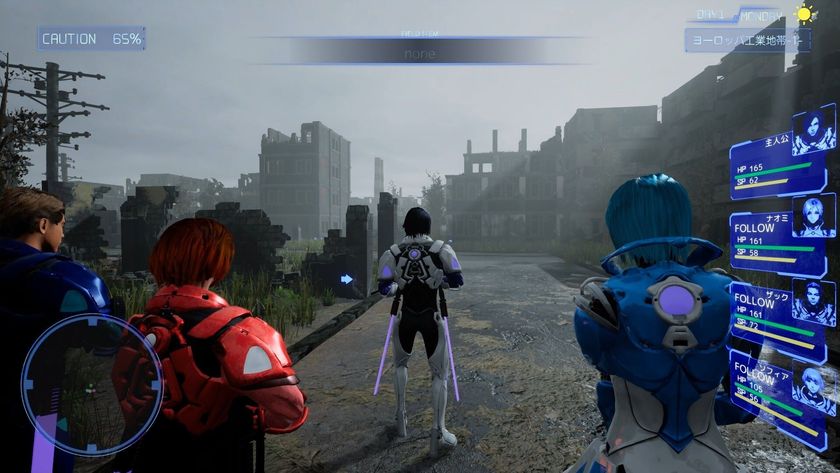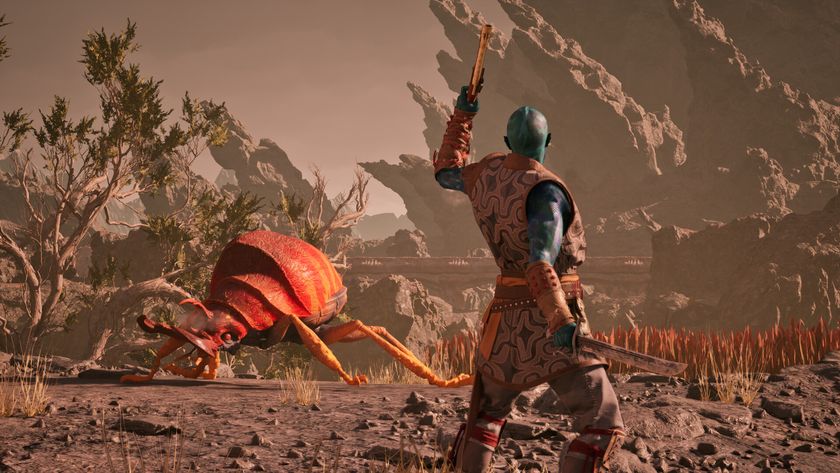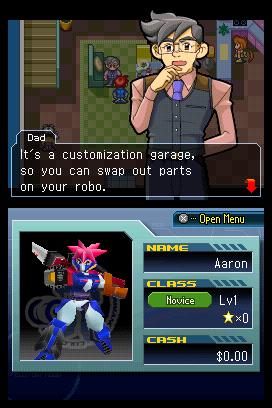Why you can trust 12DOVE
As soon asbattleskick off, it's up to you to empty all the ammo you can into your fleet-footed opponent, while avoiding their attacks however you can. Depending on the weapons involved, it can be a bit of a cat-and-mouse game of ducking behind walls, or an all-out brawl of shooting, lobbing grenades and good ol' fashioned bludgeoning. After being knocked down you're given a few seconds of invulnerability to stand up without harassment, but your enemies have this luxury too so you can't be cheap. The battles are pretty easy for the first few hours, but once the difficulty ramps up you'll actually have to start customizing your Robo with different weapons, legs, etc. depending on what your foe is wielding.
Parts are purchased with money won from matches, though their power hierarchy is a bit odd considering the type of game it is. In most RPGs you'll find bigger and better weapons and items as you progress and fight harder enemies. In Custom Robo Arena most of the new parts you'll acquire have similar stats, just with different focuses (attack, homing, etc.), so it's really more about which work in conjunction with each other than simply outfitting the best ones you have. This works fine in proper mech sims like Chromehounds, but it would have been nice to have had a more progressively rewarding structure since the game has the otherwise slow narrative progression of an RPG.

If you need a break from walking, talking and fighting, you can pose your Robo against different background dioramas that can be purchased. It's a purely visual thing though, something that will likely only be appreciated by those with more Custom Robos than real friends. The actual buying and customizing process is a mostly painless experience; you can can test out new parts before you buy them, but annoyingly can't compare their stats side-by-side against what you currently have equipped.
After you've had your first few battles and been introduced to the rest of the cast, you'll settle into a fairly regular schedule of waking up, eating breakfast with your creepily cheery family, going to class, battling various challengers after school, and heading home for a creepily pleasant dinner. The plot eventually gets a little out there, as most Japanese RPGs do, but it's well-translated and has a legitimately clever sense of humor at times. You can generally get a reminder of what you're supposed to be doing from talking to enough people, but if you forget to sit in your assigned chair when you arrive at school, for example, class will never begin and you won't be able to progress until you figure out what you're doing wrong. There are a few odd hang ups like that, so make sure to pay attention (unlike us) when you're being told where to go next.
More info
| Description | It's a good bet for anyone looking for some casual, small-scale robot battlin' action. |
| Platform | "DS" |
| US censor rating | "Everyone 10+" |
| UK censor rating | "" |
| Release date | 1 January 1970 (US), 1 January 1970 (UK) |

Blood of Dawnwalker devs explain how the vampire RPG's "narrative sandbox" builds on what they were "known for crafting" in games like The Witcher 3

Persona and Metaphor: ReFantazio composer's new JRPG gets a Steam Next Fest demo, and it's basically a turn-based Metal Gear Solid

Avowed is nothing like Bethesda's RPGs, but The Elder Scrolls 6 should take inspiration from its combat
Most Popular





